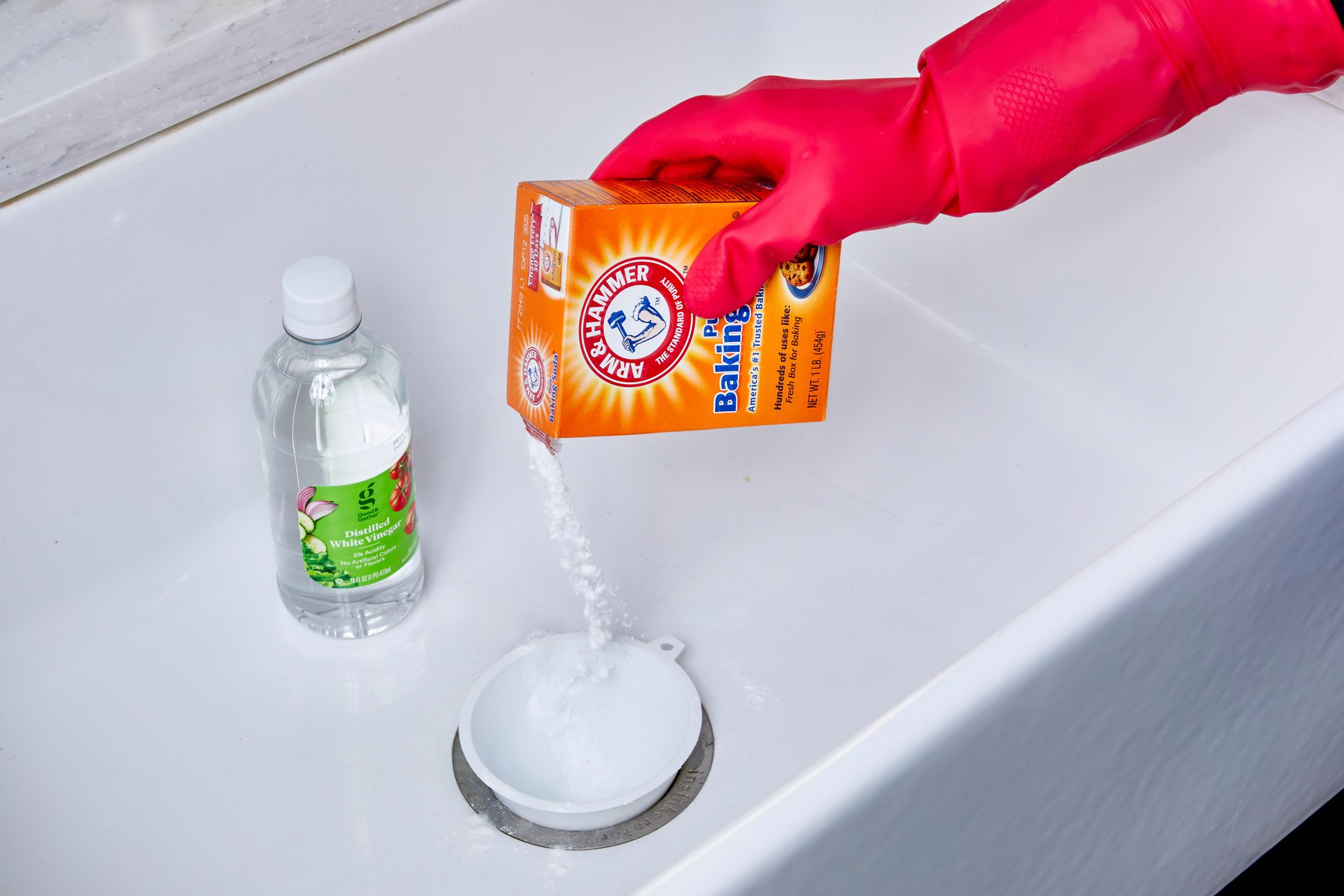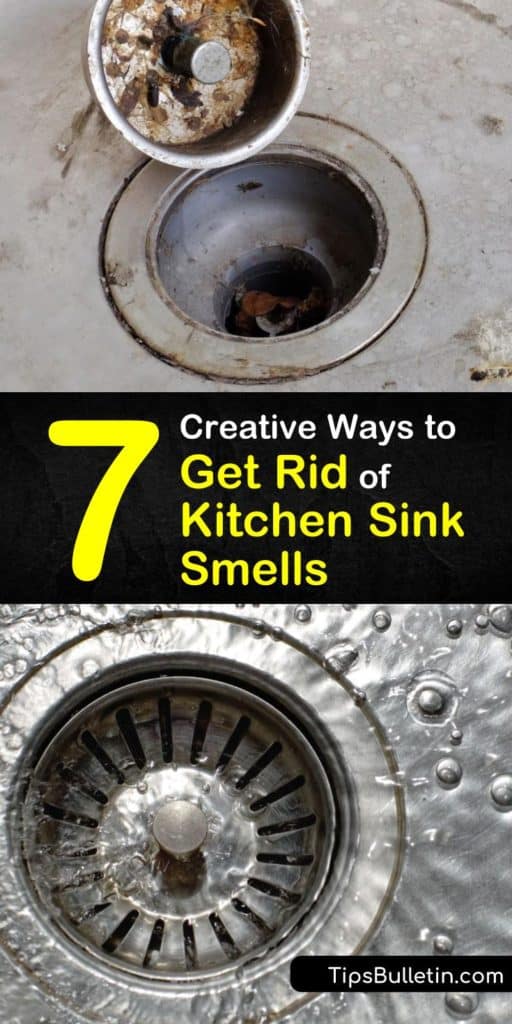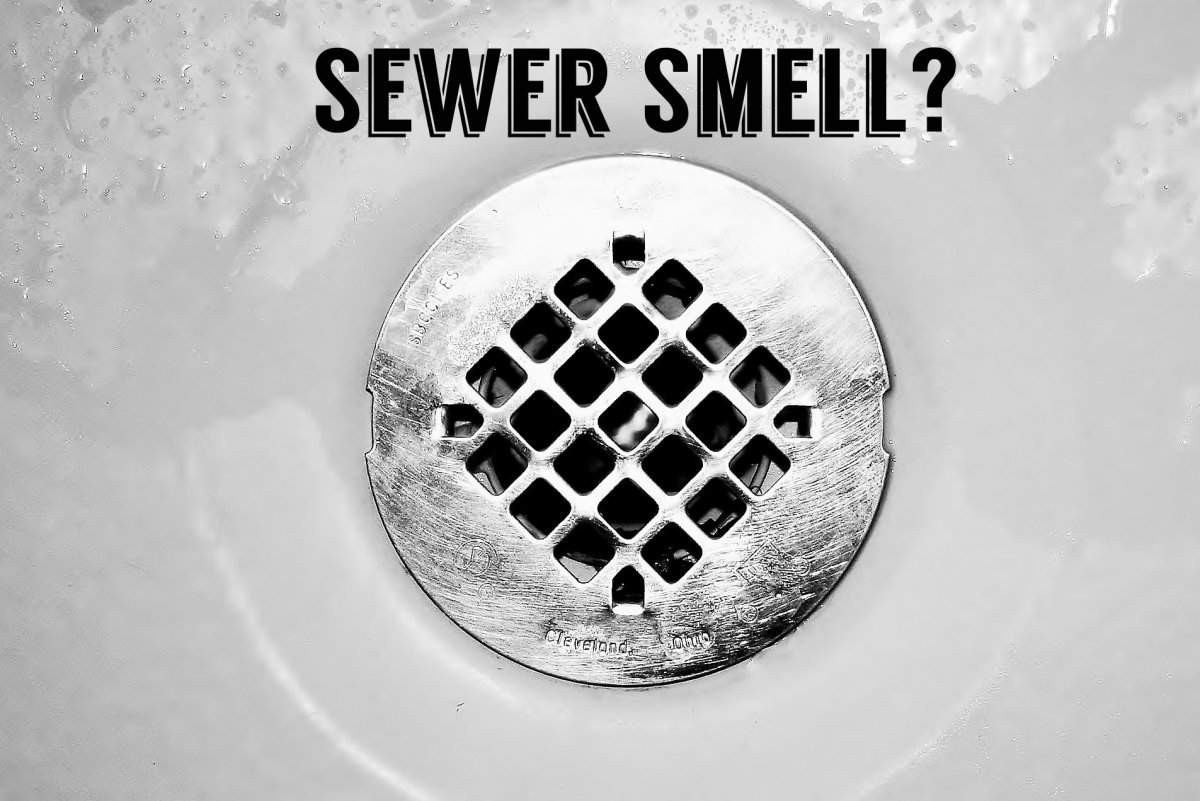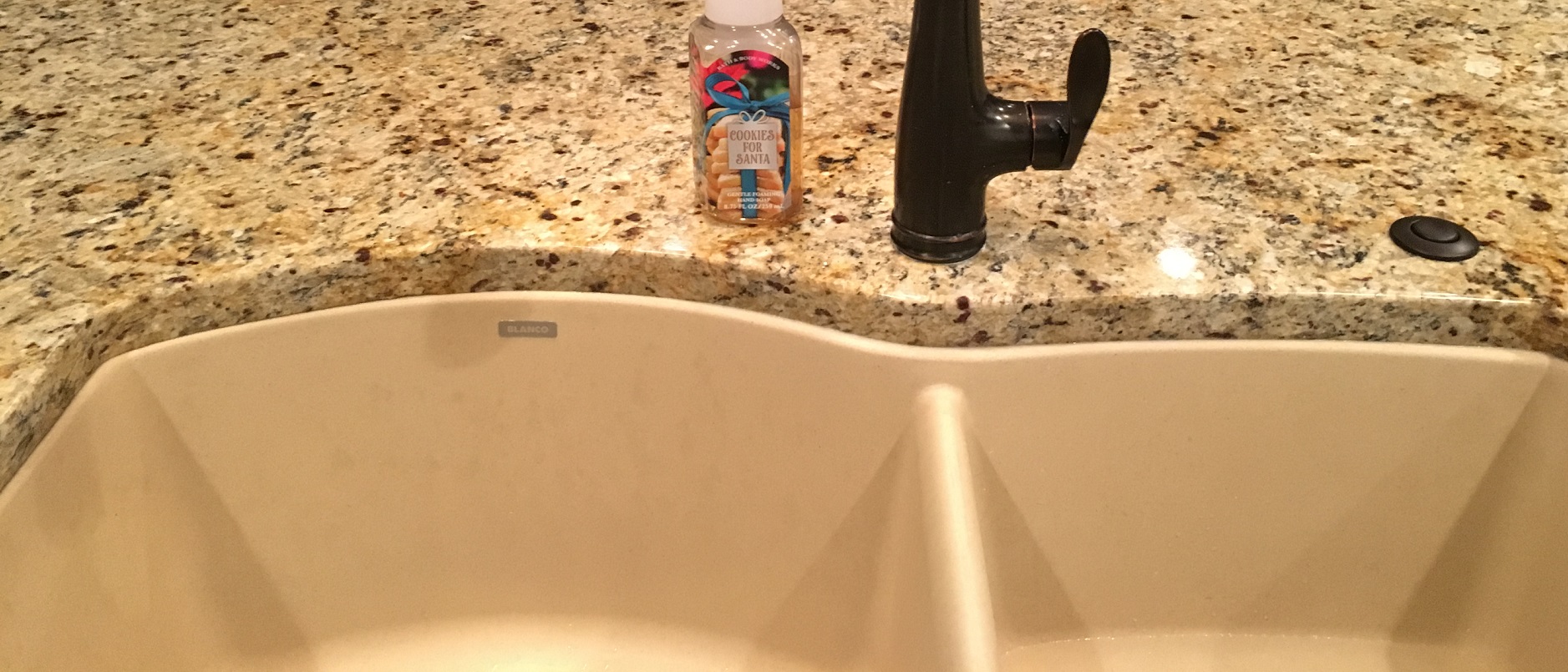If you've noticed a foul odor coming from your kitchen sink, chances are you have a sewer smell issue. This unpleasant smell can be caused by a variety of factors, from simple clogs to more serious plumbing problems. Below are some of the most common causes of sewer smell in kitchen sinks. Blocked or Clogged Drain: One of the most common reasons for sewer smell in kitchen sinks is a blocked or clogged drain. This can happen when food particles, grease, and other debris get stuck in the pipes, creating a breeding ground for bacteria and causing a foul odor. Dry P-Trap: The P-trap is the curved section of pipe under your sink that is designed to trap water and prevent sewer gases from entering your home. If this trap dries out, it can allow sewer gases to escape, resulting in a strong smell. Broken Sewer Line: In more serious cases, the smell may be caused by a broken or damaged sewer line. This can occur due to tree root intrusion, shifting soil, or old age. If you suspect a broken sewer line, it's important to seek professional help as soon as possible.Causes of Sewer Smell Coming from Kitchen Sink
Now that you know the potential causes of sewer smell in your kitchen sink, let's discuss how to get rid of it. The following DIY solutions can help eliminate the smell and prevent it from coming back. Clean the Sink and Drain: The first step in getting rid of sewer smell is to thoroughly clean your sink and drain. Use a mixture of hot water and dish soap to wash away any food particles or residue that may be causing the smell. Use Baking Soda and Vinegar: Another effective DIY solution is to use a mixture of baking soda and vinegar to clean your sink and drain. This natural remedy can help break down any debris and eliminate odors. Flush with Boiling Water: Boiling water can help flush away any remaining debris and bacteria. Simply pour a pot of boiling water down the drain to help eliminate the smell. Try a Commercial Drain Cleaner: If the above solutions don't work, you may need to use a commercial drain cleaner to break down any stubborn clogs and eliminate the smell. Be sure to follow the instructions carefully and use caution when handling these products.How to Get Rid of Sewer Smell in Kitchen Sink
If you prefer to use natural remedies, there are several options for getting rid of sewer smell in your kitchen sink using items you likely already have at home. Lemon Juice and Salt: Mix lemon juice and salt together to create a paste. Rub this mixture on your sink and drain and allow it to sit for a few minutes before rinsing with hot water. Essential Oils: Certain essential oils, such as peppermint, eucalyptus, and tea tree, have natural antibacterial properties and can help eliminate sewer smell. Mix a few drops of your chosen oil with hot water and pour it down the drain. Borax and Lemon: Make a paste with equal parts borax and lemon juice and use it to clean your sink and drain. Leave it on for 10-15 minutes before rinsing with hot water.DIY Solutions for Sewer Smell in Kitchen Sink
In addition to the causes mentioned above, there are a few other common reasons for sewer smell in kitchen sinks. These include: Improper Venting: If your plumbing system is not properly vented, it can cause sewer gases to escape through your sink. A plumber can help determine if this is the case and make any necessary repairs. Sewer Line Blockage: A blockage in your main sewer line can also cause sewer smell in your kitchen sink. This is often accompanied by slow draining and gurgling noises coming from your pipes. Cracked Drain Pipe: A cracked drain pipe can allow sewer gases to escape, resulting in a foul odor. This is often caused by old age or shifting soil.Common Reasons for Sewer Smell in Kitchen Sink
If DIY solutions are not effective in eliminating the sewer smell in your kitchen sink, it may be time to seek professional help. A licensed plumber can diagnose and address any underlying issues that may be causing the smell. Hydro-Jetting: Hydro-jetting is a method of thoroughly cleaning your pipes using high-pressure water. This can help remove any clogs and eliminate odors. Sewer Line Repair or Replacement: In more serious cases, a plumber may need to repair or replace a damaged sewer line in order to get rid of the sewer smell in your kitchen sink.Professional Help for Sewer Smell in Kitchen Sink
While it's important to know how to get rid of sewer smell, it's even more important to prevent it from happening in the first place. Here are a few tips to help prevent sewer smell in your kitchen sink: Regular Cleaning: Keep your sink and drain clean by regularly washing them with hot water and soap, and using natural remedies such as baking soda and vinegar to prevent buildup. Proper Disposal of Grease and Food: Avoid pouring grease down your sink and use a drain strainer to catch food particles and prevent them from clogging your pipes. Regular Plumbing Maintenance: Have a licensed plumber inspect your plumbing system regularly to catch any potential issues before they become major problems.Preventing Sewer Smell in Kitchen Sink
If you're experiencing sewer smell in your kitchen sink, it's important to be aware of any other signs that may indicate a larger plumbing issue. These include: Slow Draining: If your sink is draining slowly, it may be a sign of a clogged or damaged sewer line. Gurgling Noises: Unusual noises coming from your pipes, such as gurgling or bubbling, can indicate a blockage or other issue in your sewer line. Sewage Backup: If sewage is backing up into your sink or other drains in your home, it's a clear sign of a major problem with your sewer line.Signs of a Sewer Line Issue in Kitchen Sink
Regular cleaning and maintenance of your kitchen sink drain can go a long way in preventing sewer smell and other plumbing issues. Here are some tips for keeping your drain clean and functional: Use a Plunger: A plunger can be an effective tool for clearing minor clogs in your kitchen sink drain. Flush with Hot Water: To prevent buildup and keep your drain functioning properly, flush it regularly with hot water. Use Enzyme Drain Cleaners: Enzyme drain cleaners can help break down and remove organic material, preventing clogs and eliminating odors.How to Clean and Maintain Kitchen Sink Drain
In addition to the DIY solutions mentioned earlier, there are several natural remedies you can use to get rid of sewer smell in your kitchen sink. These include: Activated Charcoal: Placing a few pieces of activated charcoal in your drain can help absorb odors and keep your sink smelling fresh. Citrus Peels: Grind up some citrus peels in your garbage disposal to freshen up your sink and eliminate odors. Baking Soda and Lemon Juice: Sprinkle baking soda down your drain, followed by lemon juice, to create a natural deodorizer and cleaner for your sink.Using Natural Remedies for Sewer Smell in Kitchen Sink
If the sewer smell in your kitchen sink persists, it may be a sign of a more serious plumbing problem. These can include: Leaking Sewer Pipe: A leak in your sewer pipe can cause a foul odor to permeate through your home. A plumber can help locate and repair the leak. Sewer Line Breakage: A break or collapse in your sewer line can lead to sewage backups and a strong smell. Immediate professional help is necessary in this situation. Improperly Installed Plumbing: If your plumbing was not installed correctly, it can lead to a variety of issues, including sewer smell. A plumber can assess the situation and make any necessary repairs. In conclusion, sewer smell in your kitchen sink is not only unpleasant but can also be a sign of underlying plumbing issues. By understanding the causes and implementing preventative measures, you can keep your kitchen smelling fresh and your plumbing functioning properly. If the smell persists or you suspect a larger issue, don't hesitate to seek professional help to address the problem. With proper maintenance and care, you can keep sewer smell at bay and ensure a clean and healthy kitchen environment.Possible Plumbing Problems Causing Sewer Smell in Kitchen Sink
Reasons for Sewer Smell in Your Kitchen Sink
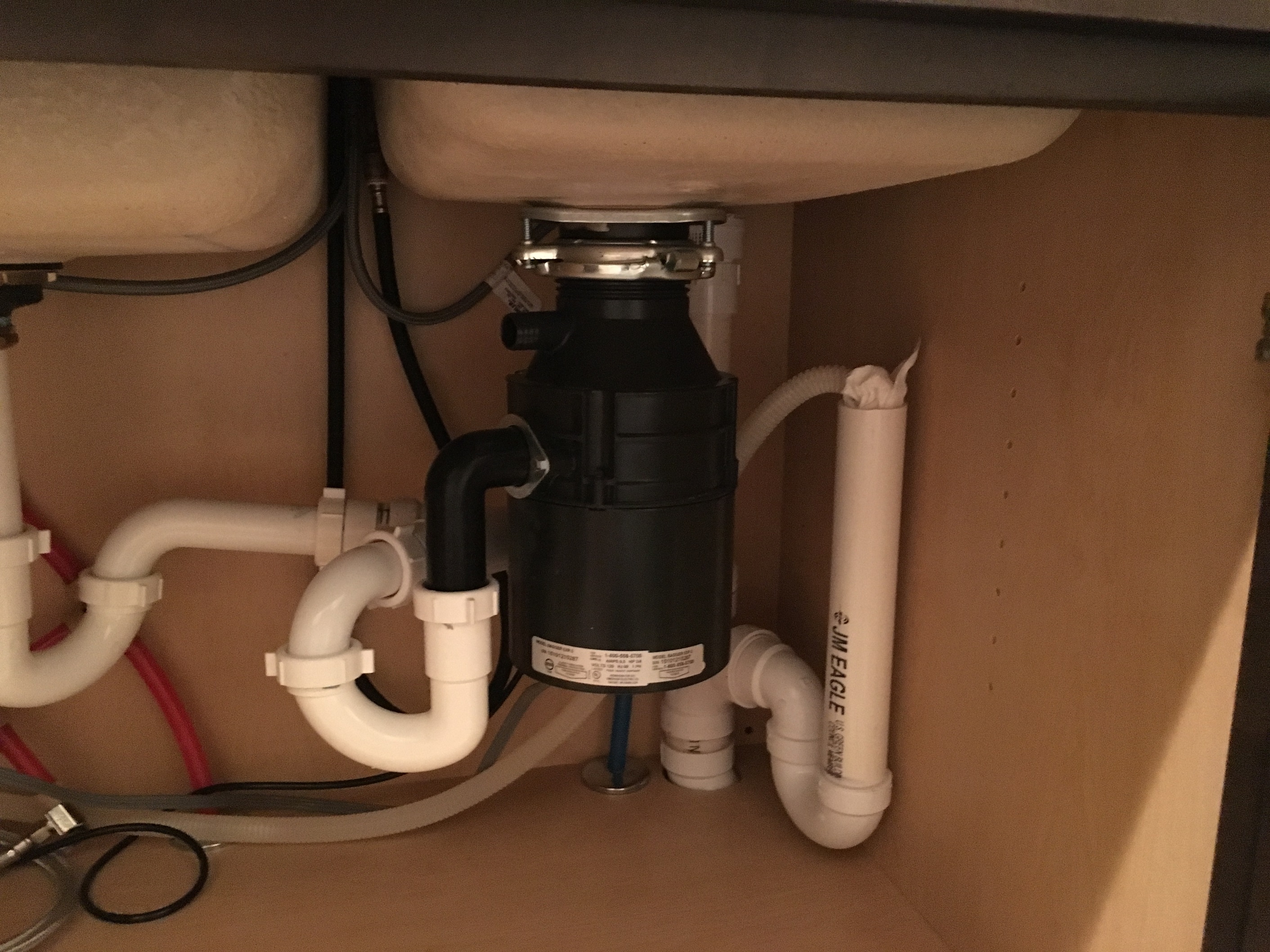
Common Causes
 There are a few common causes for
sewer smell coming from your kitchen sink
. One of the main reasons is a blockage in the plumbing system. This can occur due to a buildup of food particles, grease, and other debris in the pipes. Another common cause is a dry P-shaped trap. This trap is located beneath your sink and is designed to hold a small amount of water that acts as a barrier against sewer gases. If the trap dries out, it can allow these gases to escape into your kitchen.
There are a few common causes for
sewer smell coming from your kitchen sink
. One of the main reasons is a blockage in the plumbing system. This can occur due to a buildup of food particles, grease, and other debris in the pipes. Another common cause is a dry P-shaped trap. This trap is located beneath your sink and is designed to hold a small amount of water that acts as a barrier against sewer gases. If the trap dries out, it can allow these gases to escape into your kitchen.
Less Common Causes
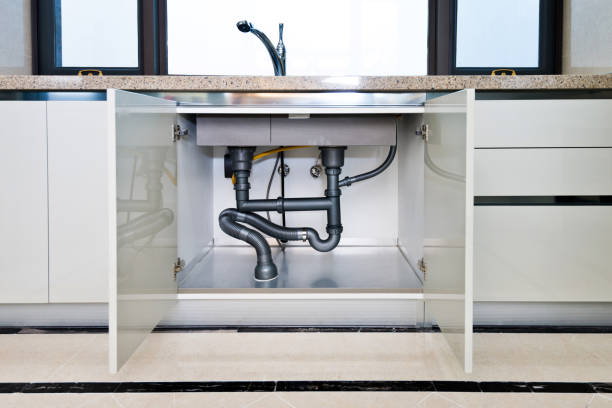 In some cases, the sewer smell may be caused by a damaged or cracked sewer line. This can allow sewage to leak into your pipes and cause a foul smell. Another less common cause is a malfunctioning vent pipe. This pipe is responsible for allowing air to flow through the plumbing system and if it becomes blocked or damaged, it can cause negative air pressure that can pull sewer gases into your home.
In some cases, the sewer smell may be caused by a damaged or cracked sewer line. This can allow sewage to leak into your pipes and cause a foul smell. Another less common cause is a malfunctioning vent pipe. This pipe is responsible for allowing air to flow through the plumbing system and if it becomes blocked or damaged, it can cause negative air pressure that can pull sewer gases into your home.
Solutions
 If you are experiencing a sewer smell coming from your kitchen sink, there are a few solutions to consider. First, try running hot water and a mixture of baking soda and vinegar down the drain to help break up any blockages. You can also try pouring a cup of bleach down the drain to kill any bacteria causing the smell. If the issue persists, it may be best to call a professional plumber to inspect and repair any damaged pipes or vents.
In addition, it is important to regularly clean and maintain your kitchen sink and plumbing system to prevent future sewer smells. This includes regularly removing any food particles or grease buildup from the sink and using a drain cleaner to prevent clogs. Remember to also check and refill the water in your P-shaped trap to ensure it is functioning properly. By taking these steps, you can keep your kitchen smelling fresh and avoid any unpleasant odors coming from your sink.
If you are experiencing a sewer smell coming from your kitchen sink, there are a few solutions to consider. First, try running hot water and a mixture of baking soda and vinegar down the drain to help break up any blockages. You can also try pouring a cup of bleach down the drain to kill any bacteria causing the smell. If the issue persists, it may be best to call a professional plumber to inspect and repair any damaged pipes or vents.
In addition, it is important to regularly clean and maintain your kitchen sink and plumbing system to prevent future sewer smells. This includes regularly removing any food particles or grease buildup from the sink and using a drain cleaner to prevent clogs. Remember to also check and refill the water in your P-shaped trap to ensure it is functioning properly. By taking these steps, you can keep your kitchen smelling fresh and avoid any unpleasant odors coming from your sink.
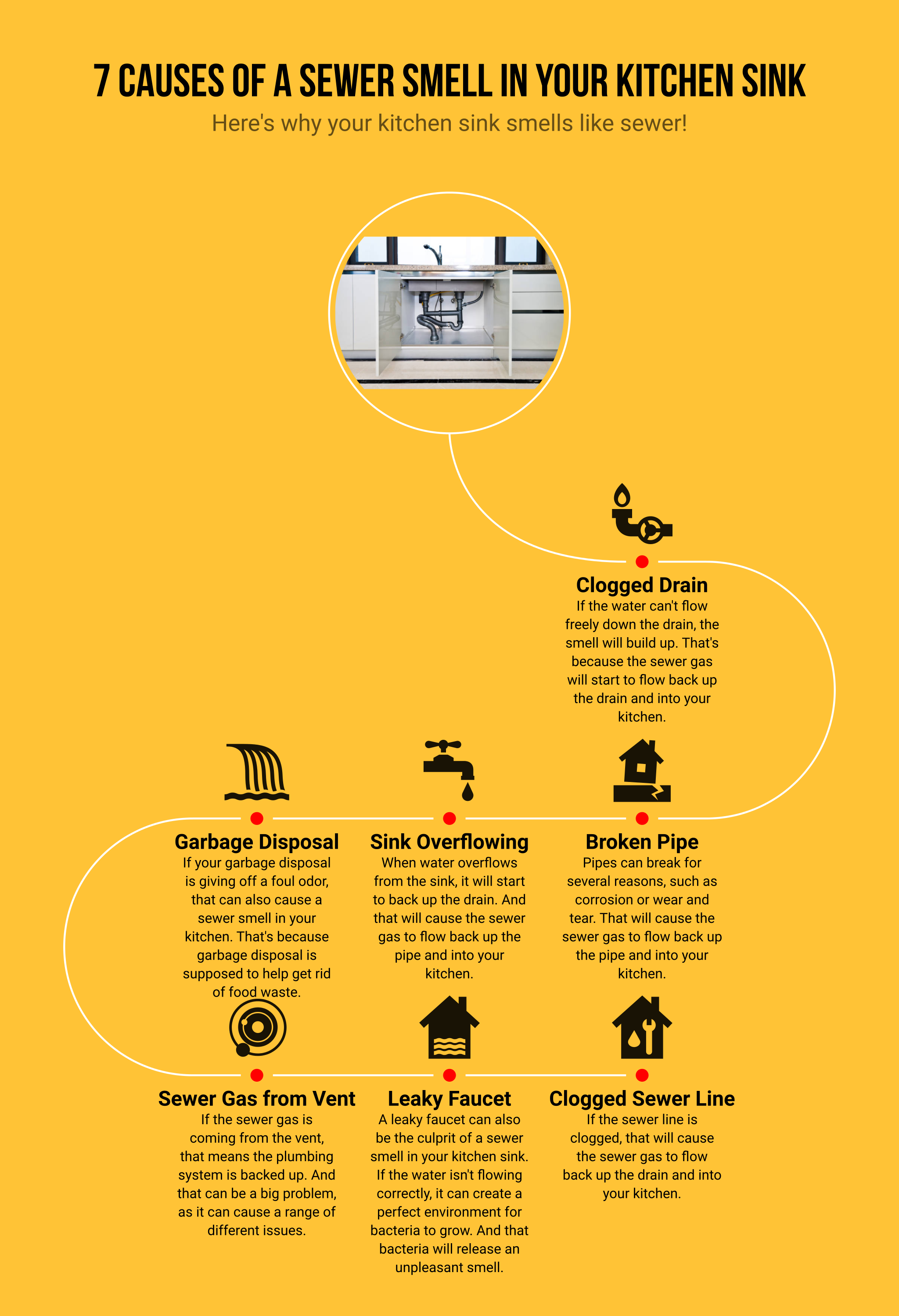





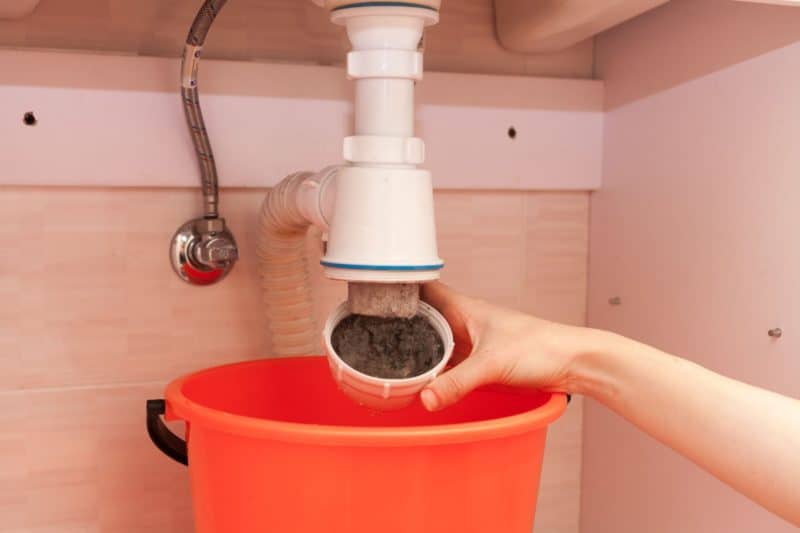
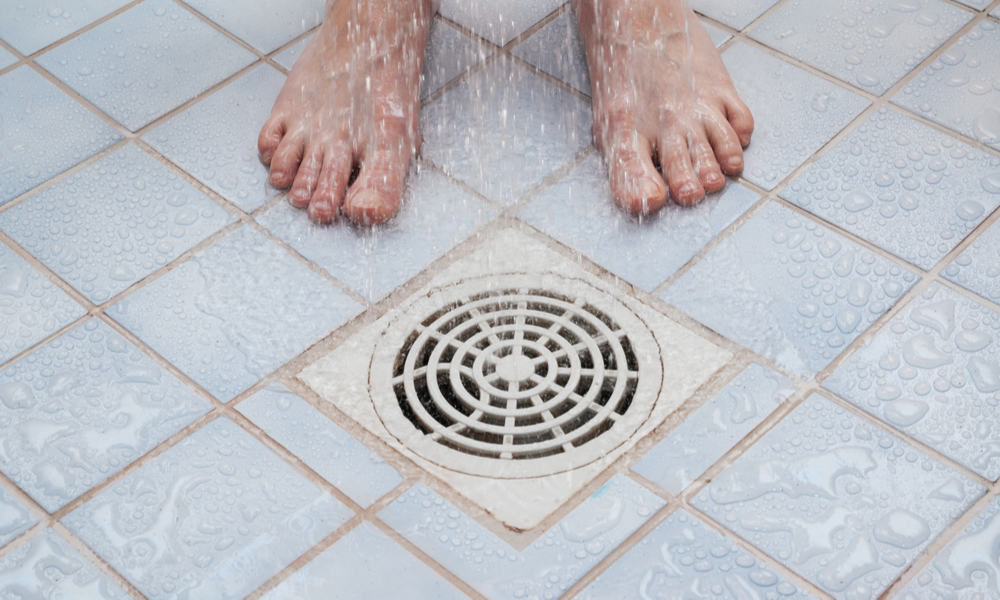



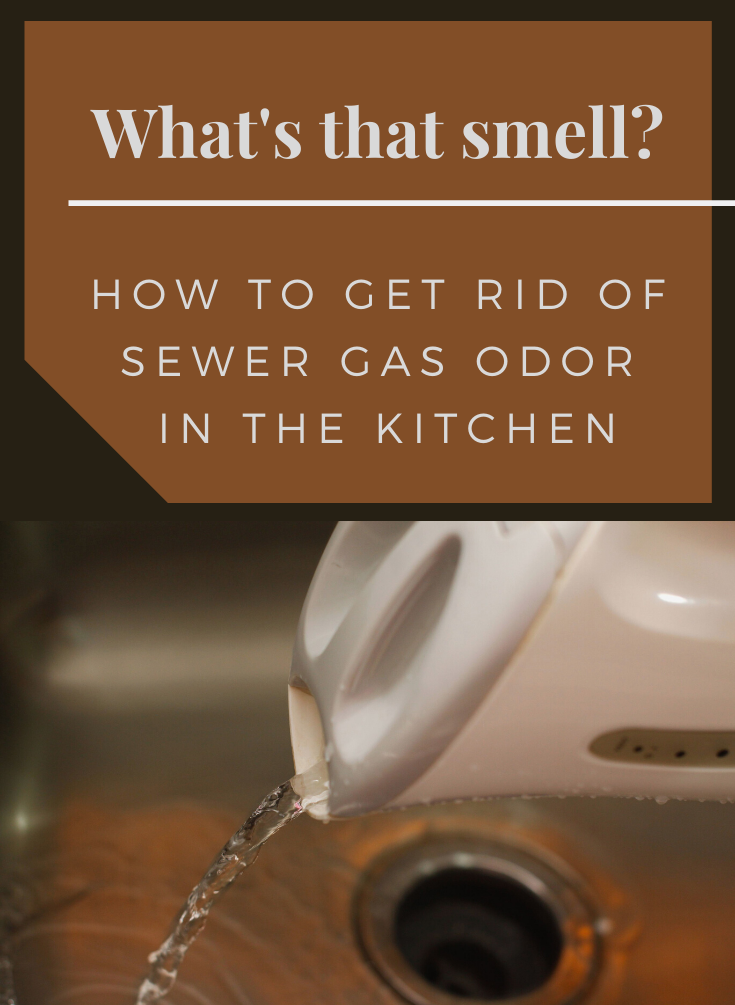
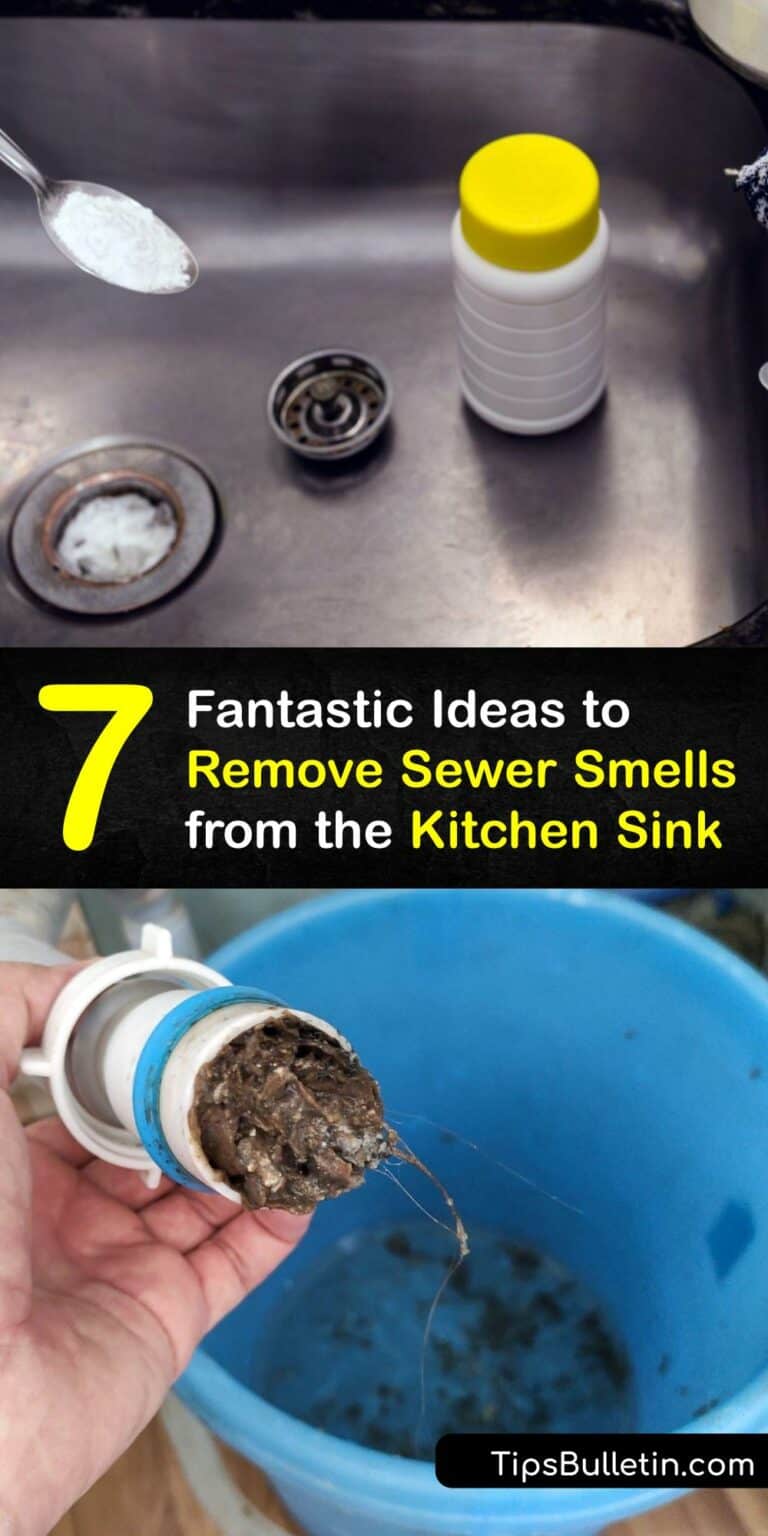





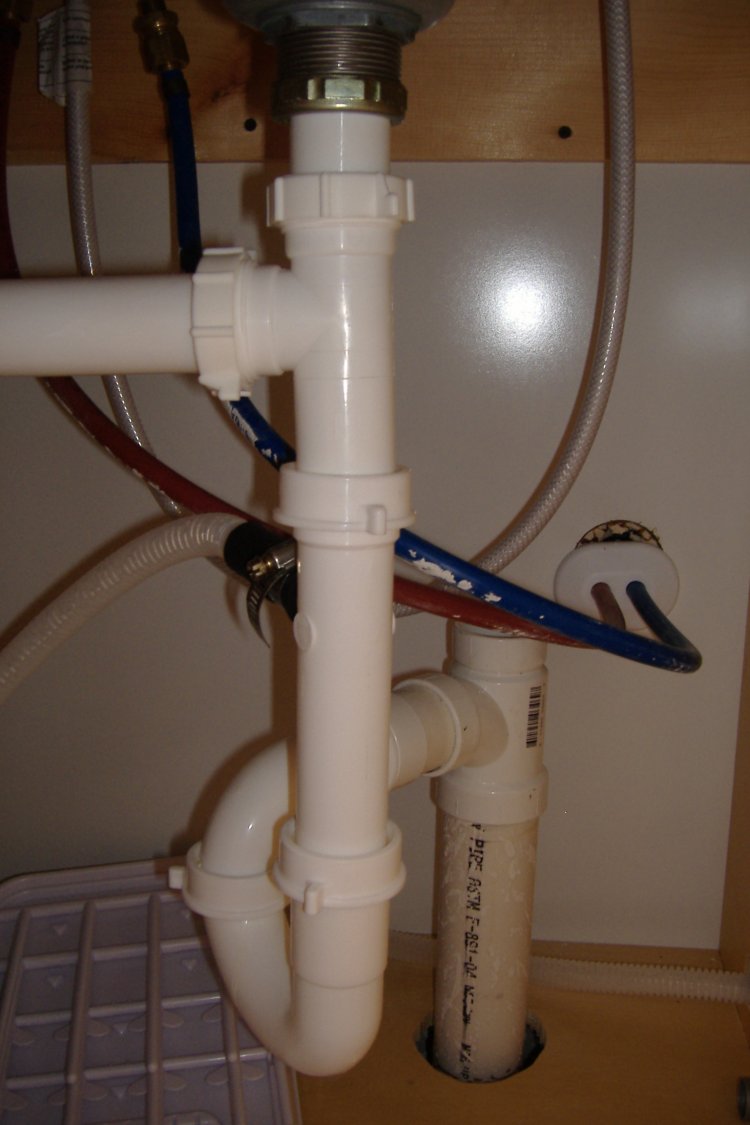

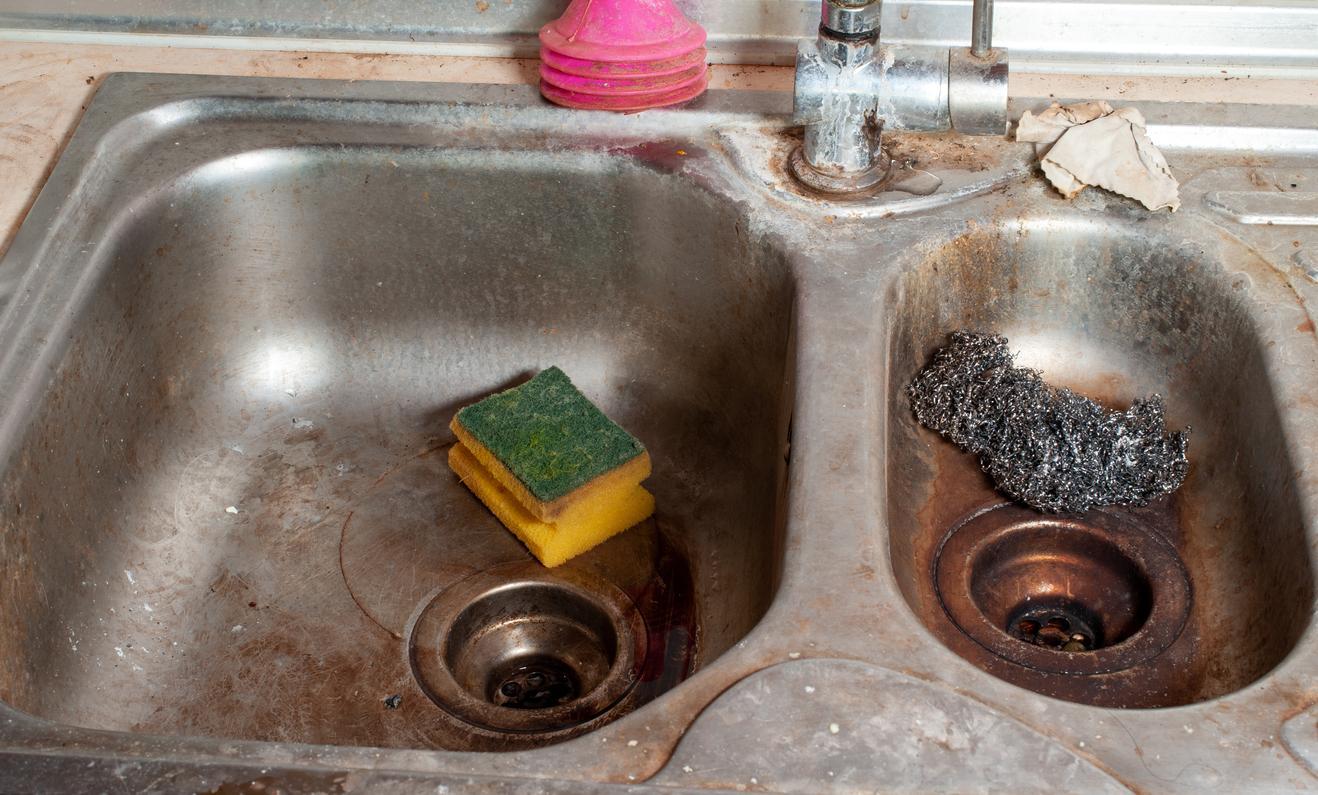

















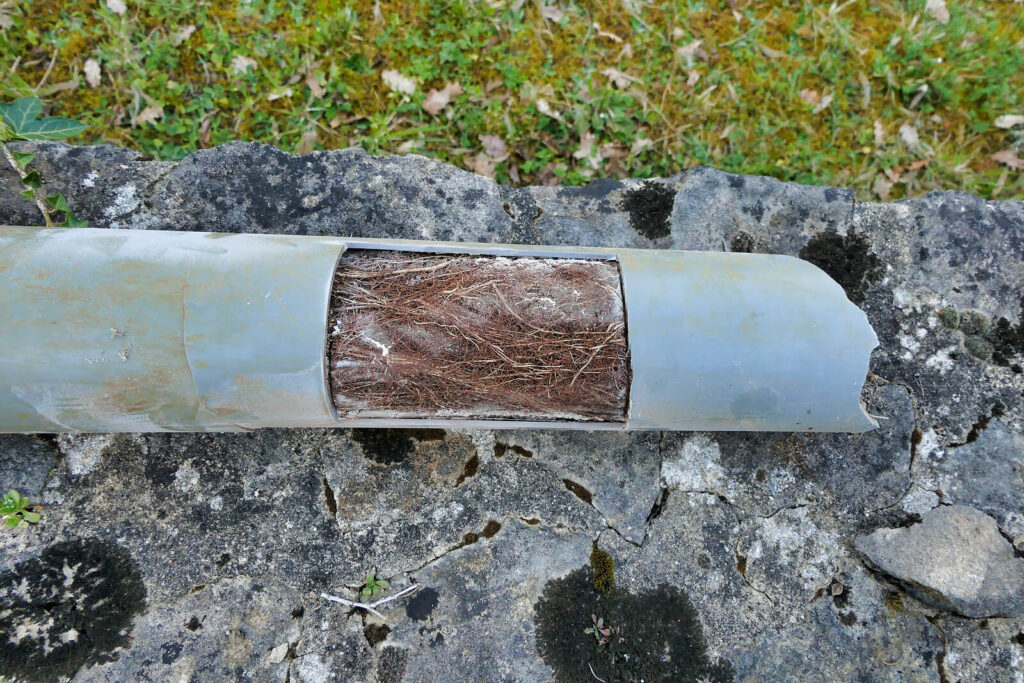







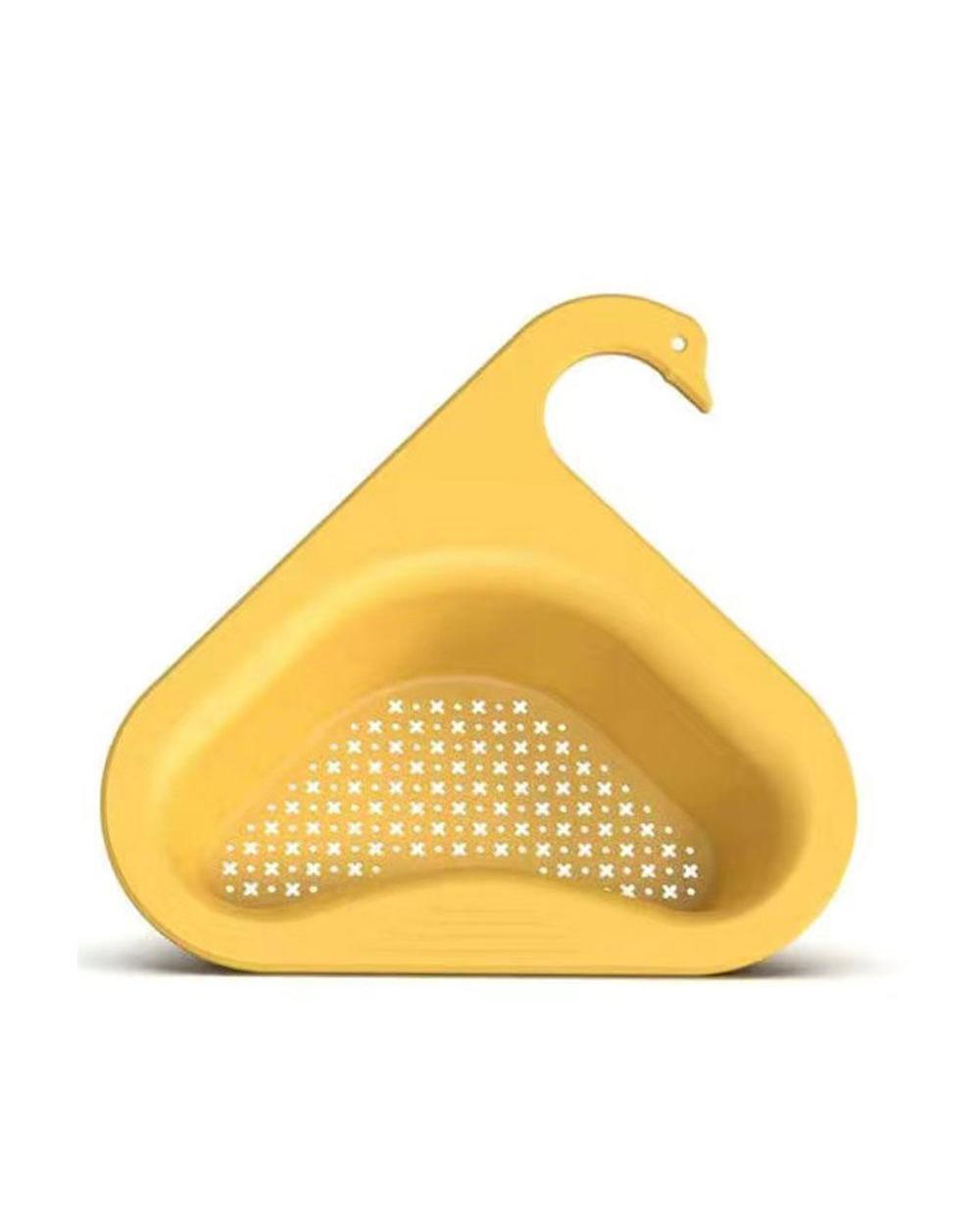
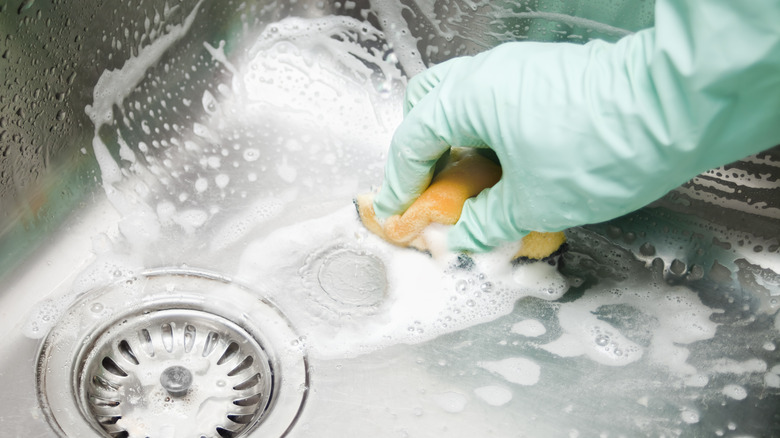


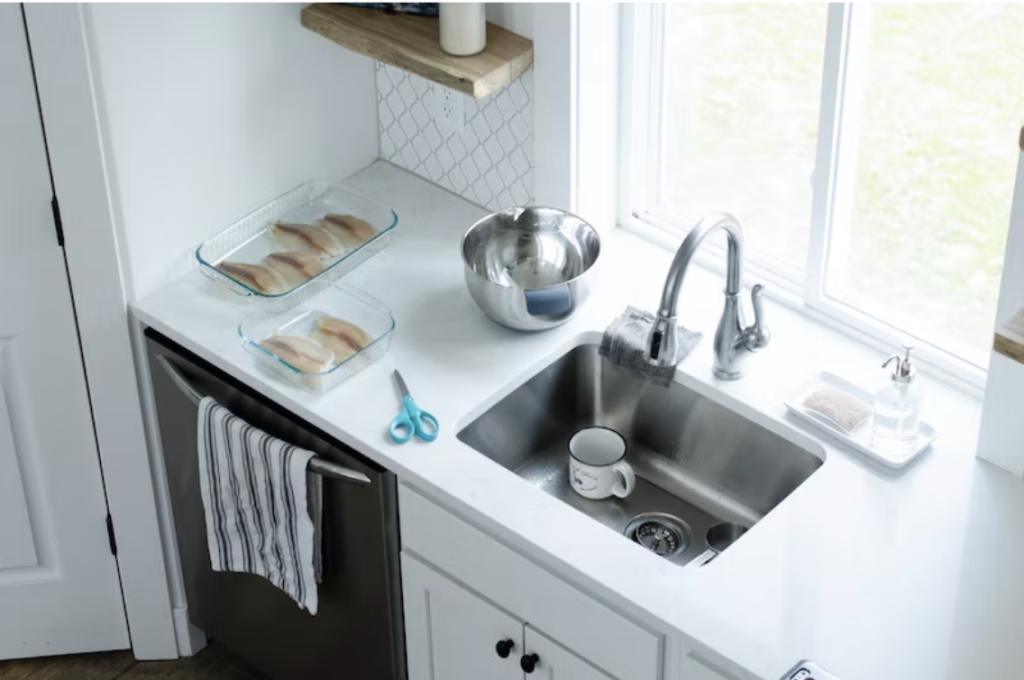


:max_bytes(150000):strip_icc()/how-to-clean-a-kitchen-sink-and-drain-02-5660035-7a630bc36f2c401bbe412bbe85937ff3.jpg)

